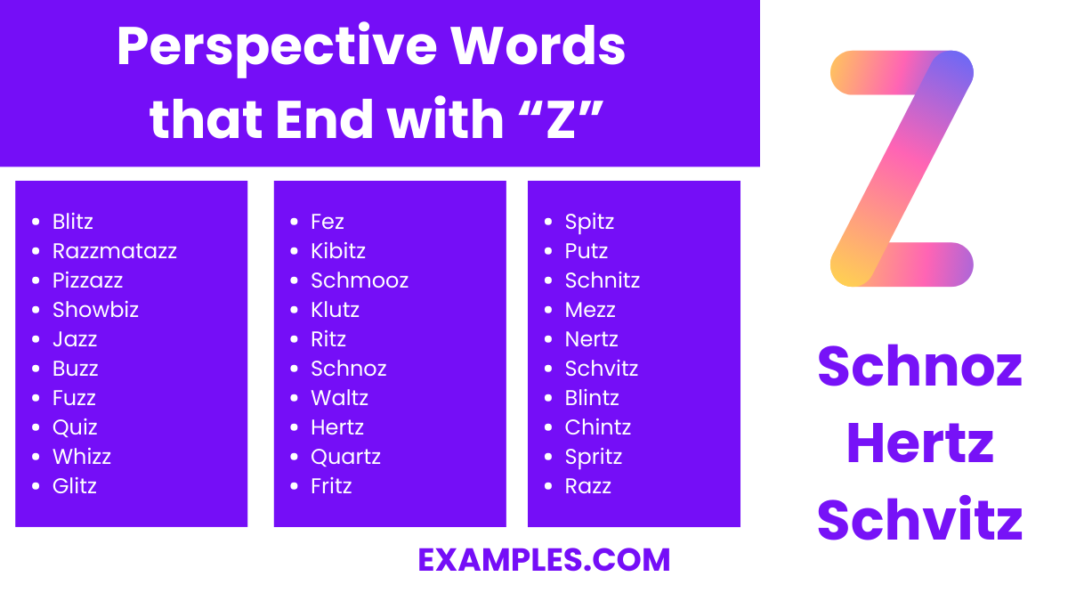Outline
Introduction
Understanding the Significance
Exploring the Unique Characteristics of Words that End in Z
Distinctive Sounds and Pronunciations
Cultural and Linguistic Influences
Common Usage and Examples
Everyday Vocabulary with Z Endings
Technical and Specialized Terms
Historical Evolution of Z-Ending Words
Etymology and Origins
Adaptation and Borrowing
The Versatility of Z in Language
Adjectives and Adverbs
Nouns and Verbs
The Impact of Words that End in Z in Modern Communication
Pop Culture References
Music and Entertainment
Literature and Media
Digital Age and Internet Vernacular
Social Media and Slang
Memes and Online Communities
Challenges and Quirks of Z-Ending Words
Spelling and Pronunciation Oddities
Homophones and Ambiguities
Regional Variances and Dialects
Semantic Shifts and Misinterpretations
Evolutionary Changes in Meaning
Cross-Cultural Confusions
Utilizing Z-Ending Words in Writing and Expression
Creative Writing and Poetry
Rhyme and Rhythm
Expressive Techniques
Professional and Academic Contexts
Technical Writing and Jargon
Formal Communication
Conclusion
Words that end in Z hold a unique place in language, offering both a sense of distinctiveness and a challenge in communication. From everyday vocabulary to specialized terminology, they enrich our linguistic landscape with their diverse origins and evolving meanings. Whether encountered in literature, music, or everyday conversation, these words add flair and character to our communication. Embracing their quirks and nuances enhances our understanding of language and fosters creativity in expression.
FAQs
- Why are there relatively fewer words that end in Z compared to other letters?
- The scarcity of words ending in Z can be attributed to several factors, including linguistic origins, phonetic constraints, and historical influences. While Z is a less common letter in many languages, its presence at the end of words often requires specific phonetic structures and may limit the pool of possible endings.
- Are there any rules or patterns for words ending in Z?
- While there are some general patterns and tendencies in the formation of words ending in Z, such as the use of suffixes like “-ize” or “-ize” in verbs, the diversity of languages and the evolution of vocabulary mean that rules can vary widely. Additionally, loanwords and borrowings from other languages can further complicate any strict patterns.
- What are some examples of words ending in Z in everyday usage?
- Common examples of words ending in Z include “quiz,” “buzz,” “fizz,” “jazz,” and “futz.” These words are often encountered in everyday conversation and are familiar to speakers of various languages.
- Do words ending in Z have any cultural or historical significance?
- Words ending in Z can reflect cultural influences, historical developments, and linguistic borrowings. For example, words borrowed from languages such as Arabic or Polish may end in Z, reflecting the linguistic heritage of those cultures.
- How can I improve my vocabulary with words ending in Z?
- To expand your vocabulary with words ending in Z, you can explore various sources such as literature, music, and specialized fields like science or technology. Reading widely and engaging with different forms of media can expose you to a diverse range of vocabulary, including words ending in Z.


